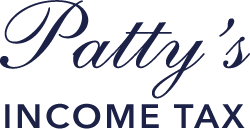In a tweet last week, Sen. Kamala Harris (D-CA) incorrectly blamed the 2017 Republican tax law for an 8.4 percent decrease in tax refunds processed so far this filing season. In fact, the decrease is mainly the result of changes to IRS withholding tables, meaning most Americans, while receiving a smaller refund, had little variance in their overall tax liability. The Washington Post awarded Harris’ statement four Pinocchios.
Harris’ tweet was an error, but much of the reaction online demonstrated a lack of empathy for the economic reality of many American taxpayers. Legislators certainly shouldn’t encourage people to confuse their refund with their overall tax liability, but policy experts shouldn’t criticize lower-income Americans for reacting strongly when those refunds are not what they expected.
In fact, many citizens are living with an extremely narrow margin of financial security. Forty percent of Americans would not be able to cover a $400 emergency expense. It is no surprise that they are struggling; wages have been stagnant for decades while the cost of essentials like housing, education and health care have skyrocketed. It’s no wonder many people prefer to be sure they are receiving a comfortable refund instead of an unexpected bill from the IRS.
Tax refunds help many lower-income families deal with their mounting financial obligations. A 2007 study found that of families who received Earned Income Tax Credit refunds of at least $1,000, 72 percent planned to use the money to pay off outstanding bills and debt while an additional 12 percent eventually ended up using the refund for that purpose. Only 39 percent were able to set aside a portion of their refund for long-term savings while 57 percent had originally hoped to do so.
But why do Americans want less money up front, using the IRS as a kind of temporary, inaccessible, no-interest savings account? Surely it would be more rational, the argument goes, to prefer paying less in taxes on each paycheck, rather than have to wait all year to get your money back.
A decision to use the U.S. Treasury as a personal bank looks more reasonable given how often private financial institutions prey upon low-income households that are trying to save money and build assets. Banks often require minimum balances on checking accounts and are known to charge fees when assets fall below the minimum. Research has shown that these minimum balance requirements are higher in communities of color, and that overdraft protection fees also target minorities and millennials.
As the Trump administration seeks to cut CFPB regulations, a tax refund looks like a much less expensive failsafe when the alternatives are offered by corporations that seek to leverage economic instability for greater profits. Payday lending interest rates, subprime mortgage loans, and tax preparation service charges all serve as disincentives to engage with private financial institutions. With so many financial pitfalls, it’s clear that low-income individuals looking to save money could do much worse than having the Treasury department hold onto it for them.
So it is no wonder that so many Americans are so attached to their tax refunds. But—perhaps counterintuitively—that anger is unlikely to translate into big changes at the voting booth. Although Twitter is ablaze with self-identified Trump voters asserting he has lost their vote after they received lower refunds than expected, Trump’s opponents should not pin their hopes to these purported swing voters. On the whole, individuals’ economic circumstances do not drive their voting behavior, partisanship does.
Still, in an America where a lower refund can mean unpaid bills or a loan default, the outcry over changes in tax withholding should serve as an important signal for policymakers: far too many of their constituents are barely staying afloat.
Source: brookings.edu
